Playing cards aren’t just games—they’re history, culture, and connection. From ancient kings in Asia to the block parties of today, they’ve carried stories and traditions across continents. For me, it’s personal—playing cards and especially the game of Spades with friends and family is one of my favorite pastimes. The trash talk, the strategy, and the laughter create memories that last a lifetime.
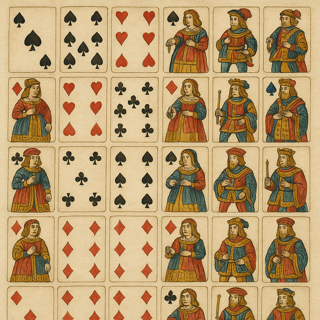
But Spades isn’t the only game in the deck. Let’s shuffle back in time and explore how the history of playing cards laid the foundation for the popular card games we love today, especially the ones rooted in Black culture and card game traditions.
The Origins of Playing Cards
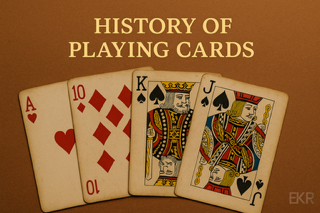
- 9th-Century China: The first playing cards appeared during the Tang Dynasty. Some historians believe they were used both for games and as a type of “paper money.”
- Persia, India & Egypt: Cards traveled west through trade routes, evolving as they crossed cultures.
- 14th-Century Europe: Italy and Spain saw the first European decks. At first, they were luxury items for nobles because they were hand-painted.
- France, 1400s: The suits we know today—hearts, diamonds, spades, clubs—were born here. France also introduced the 52-card deck with royalty (King, Queen, Jack).
Playing cards spread quickly across Europe, then to the Americas, where they mixed with different cultural traditions—eventually shaping the games we know today.
Card Games That Changed the World
Spades
- Invented: 1930s by African American students in the Midwest.
- Why It’s Iconic: It became the official card game of Black cookouts, military barracks, and HBCUs.
- Cultural Impact: Spades is more than just a game—it’s strategy, smack talk, and bonding. A bad partner can lose you the game, but a good one? Unstoppable.
Personal Note: I love Spades because it keeps you sharp. I’ve laughed the hardest and argued the loudest over a Spades table. To me, Spades feels like a rite of passage. I know you’ve heard the joke “you’re not really black if you don’t know how to play spades.”
- Played with a standard 52-card deck and 4 players in 2 teams.
- The suit of Spades is always trump, meaning it beats all other suits.
- Players “bid” on how many tricks they think they can win.
- First team to 500 points wins.
Tonk – The Money Game
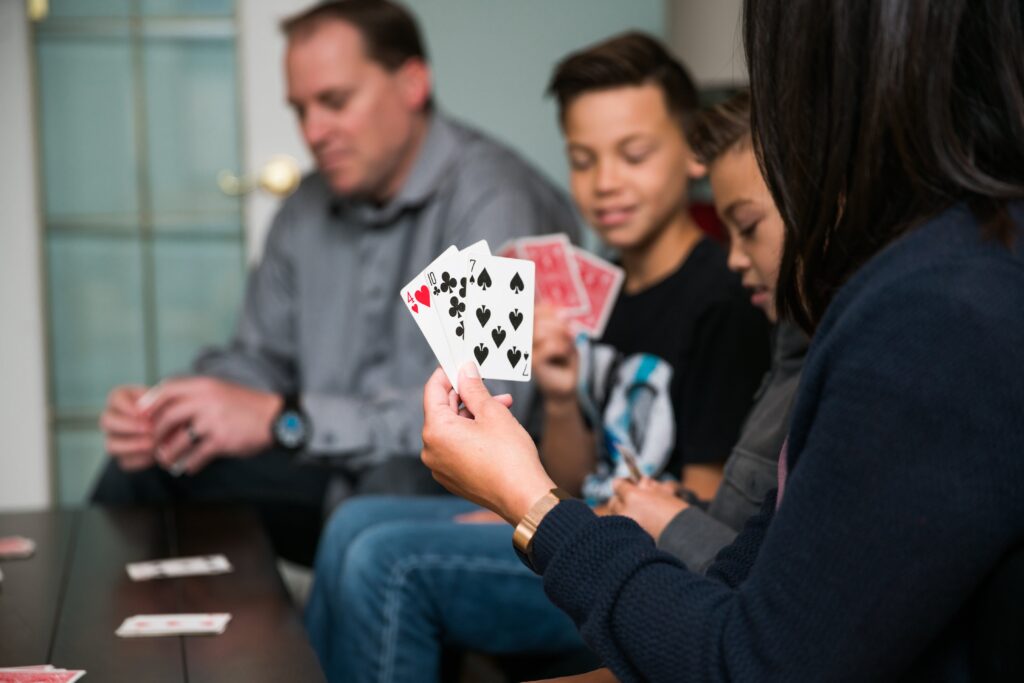
- Origins: Early 1900s in African American communities.
- Why It’s Popular: Fast-paced, often played for money. It was especially popular during WWII.
- Fun Fact: Tonk is sometimes called the “jailhouse game” because of its reputation in prisons and barracks.
- Usually played with 2–4 players using a standard deck.
- Each player is dealt 5 cards.
- Players try to form spreads (3-of-a-kind or runs in the same suit).
- Goal: either “drop” with a low hand value or run out of cards first.
Bid Whist – Spades’ Older Sibling
- History: Originated from the classic card game Whist around the 1920s by African Americans.
- Why It’s Loved: More complex than Spades, requiring deep strategy. It’s the grown folks’ table—you don’t sit here unless you really know how to play.
- Played with 4 players in 2 teams.
- Uses a 52-card deck + 2 jokers (54 cards total).
- Teams bid on how many “books” (tricks) they can win.
- The highest bidder chooses the trump suit.
- Winning team must meet or beat their bid to score points.
Poker – America’s Game
- Origins: 1800s America, influenced by French poque and Persian as nas.
- Rise to Fame: The Gold Rush and later Las Vegas casinos made it huge. Today, Texas Hold’em is the most televised version.
- Culture: Poker represents hustle, risk, and reading people—very much aligned with street smarts.
- Each player gets 2 hole cards; 5 community cards are dealt face-up.
- Players make the best 5-card hand using their 2 cards + community cards.
- Betting rounds: pre-flop, flop, turn, and river.
- Goal: win by having the best hand OR bluffing opponents into folding.
Blackjack – Quick & Deadly
- Origin: 17th-century France (Vingt-et-Un = “21”).
- Why It Works: Simple, fast, and thrilling. The game lives in both casinos and house parties.
How to Play:
- Played against the dealer, not other players.
- Goal: get as close to 21 points as possible without going over.
- Number cards = their value, face cards = 10, Ace = 1 or 11.
- If your hand beats the dealer’s hand without busting, you win.
Solitaire – Alone but Legendary
- Origin: 1700s Northern Europe.
- Why It Blew Up: Microsoft included it on Windows computers in the 1990s.
- Today: A game we all played when we were bored on the family computer.
- Played solo with one deck.
- Seven columns of cards are laid out, with only the top card face up.
- Goal: build four foundation piles (hearts, diamonds, clubs, spades) from Ace to King.
- Move cards between columns by alternating colors and descending order.
Uno (Ohio’s Contribution)
- Invented: 1971 in Cincinnati, Ohio by a barber named Merle Robbins from the classic game Crazy Eights.
- Why It’s Wild: Uno might not have Black roots, but it’s been adopted everywhere as a family favorite. And yes, we still argue about whether you can stack a Draw 2 on a Draw 4.
- Played with a special deck of 108 cards.
- Each player starts with 7 cards.
- Match the discard pile by color or number, or play an action card (Skip, Reverse, Draw).
- Don’t forget to yell “UNO!” when you have one card left.
- First to 500 points (or to run out of cards) wins.
Why Cards Are Cultural Currency in Black Communities
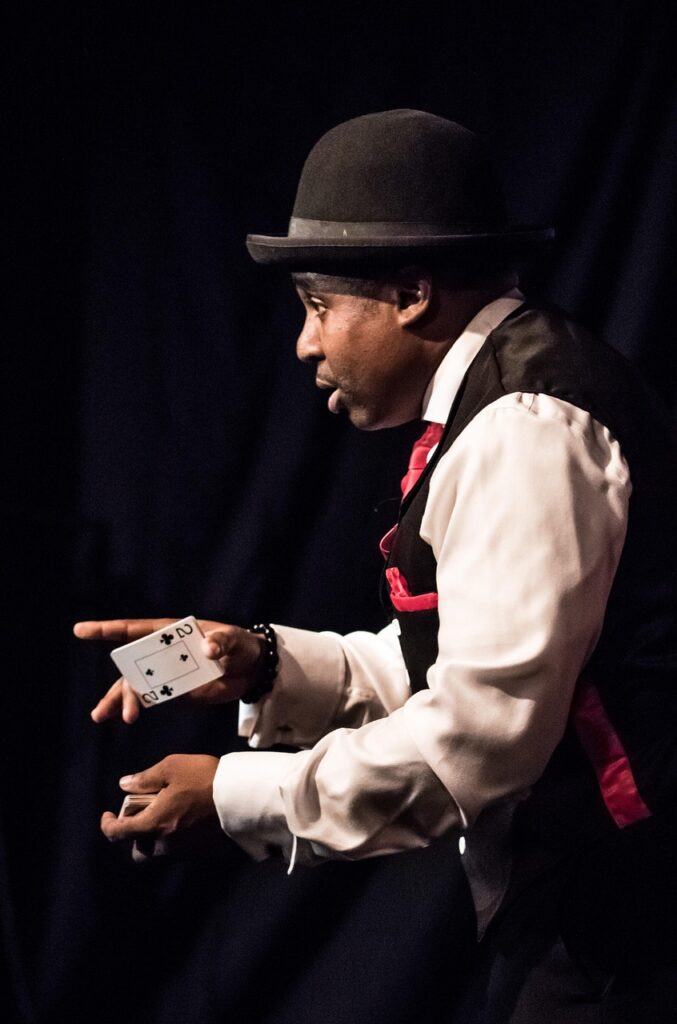
For us, playing cards are more than a deck—they’re tradition. Spades, Tonk, and Bid Whist connect generations. Elders teach the young ones, strategy is passed down like family recipes, and reputations are made (or destroyed) at the card table.
At the cookout, if the DJ sets the vibe, the Spades table sets the energy. It’s a place where you learn confidence, teamwork, and sometimes humility if you get “set.”
Cards aren’t just entertainment—they’re a way of life.
Lessons From the Deck
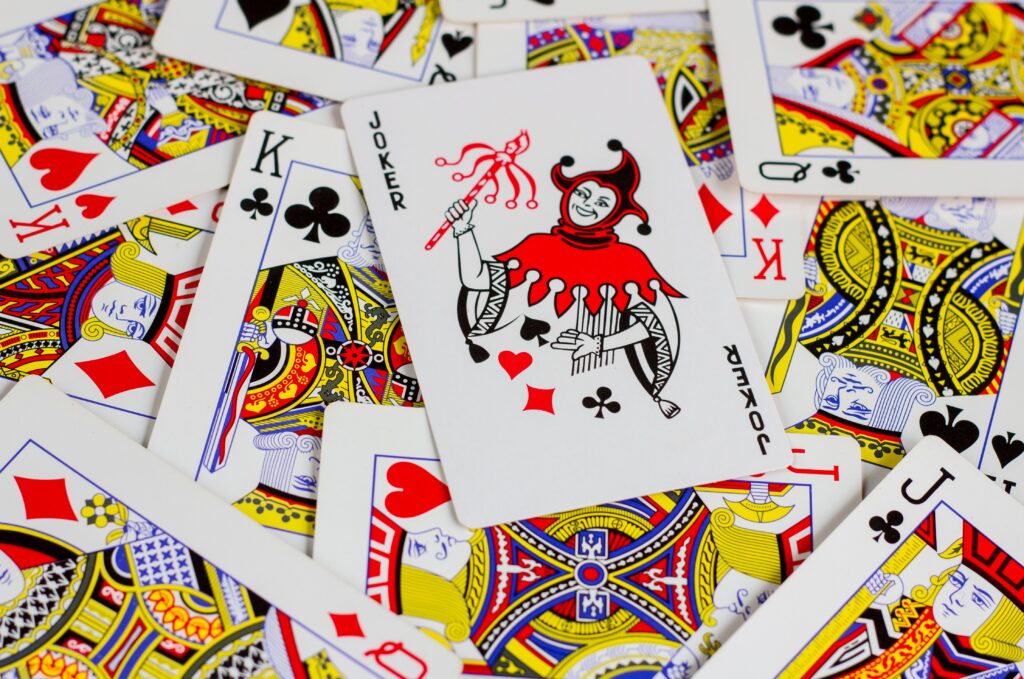
- Strategy & Patience: Spades and Bid Whist sharpen your mind.
- Teamwork: Knowing your partner’s style without saying a word is priceless.
- Tradition: These games keep culture alive, connecting us across time and space.
Final Deal
From ancient Chinese emperors to the modern-day cookout, playing cards have stood the test of time. They’ve adapted, evolved, and carried cultural meaning every step of the way.
So next time you sit at the table, remember—you’re not just playing cards or a game. You’re actually carrying on a 1,000-year tradition of card game culture that’s alive and thriving today. It’s also something fun to do with your family and friends and can even help you deal with loneliness and depression.
And for me, that will always mean one thing: calling first on “Spades!” and hoping my partner is good and has my back.
What’s your favorite card game? If it’s not mentioned in this article, tell us the name and how to play the game in the comment section. Leave a comment below and see how many people agree with you.
For a deeper dive into the history of cards and custom card decks, >>click here<<.
*** Comment below (or on any blog post) for a chance to win a $50 cash (Cash App, Zelle, Venmo) or a Visa Gift Card. Comment must be relevant to the blog you are commenting on and you must enter a valid email address.












